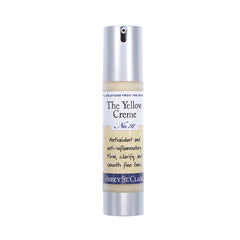Natural Help for Respiratory Viruses

It’s that time of year again when respiratory viruses are hitting almost everyone in some way. If you and your family are experiencing the flu, COVID, or RSV, it’s important to understand each of these viruses and their symptoms.
Learn more about these viral infections and the natural solutions that may help protect you against them or may help minimize symptoms if you are infected.
What Is COVID? Understanding Coronaviruses and Their Effects on the Body
The SARS-CoV-2 virus causes the infectious disease known as COVID-19. As a coronavirus, it belongs to a family of viruses that cause respiratory illnesses in humans. Other types of coronaviruses include SARS, MERS, and even the common cold.
COVID-19 can enter your body through your mouth, nose, or eyes. It then travels through your nasal passages and mucus membranes, where it attaches to cells using spike proteins and begins to multiply before traveling to your lungs. People with underlying medical conditions and elderly people are most at risk of serious symptoms.
Common symptoms of COVID-19 are:
- Cough
- Fever
- Chills
- Shortness of breath
- Sore throat
- New loss of smell or taste
- Fatigue
- Diarrhea
- Vomiting
- Headaches
- Body aches
- Congestion
These symptoms can emerge within two to 14 days after coming into contact with the virus, whether through close contact with someone currently infected or by interacting with a surface contaminated with viral droplets.
The Flu: What to Know About Influenza Viruses
The flu is a common respiratory illness that arises from coming into contact with an influenza virus. There are many influenza viruses, but the most common ones are influenza A, B, and C. Influenza A and B are seasonal; influenza C isn’t, but it usually doesn’t cause severe symptoms.
The flu is most commonly spread throughout the winter months, and while it is, in some ways, similar to the common cold, the flu often presents with more severe symptoms and may even lead to complications that send you to the hospital.
Common flu symptoms:
- Chills
- Fever
- Body aches
- Congestion
- Headache
- Cough
- Sore throat
- Fatigue
You may begin experiencing symptoms one to four days after contracting the virus. Children may also experience diarrhea and vomiting.
As a coronavirus alongside the common cold and COVID-19, the flu is contagious, spreading through direct or indirect contact with someone with the infection. For instance, you may catch the flu if someone with it sneezes or coughs nearby or if you touch a contaminated surface and then your face.
RSV and How It Impacts the Body
Respiratory syncytial virus (RSV) is a highly contagious respiratory illness that occurs from infection with a syncytial virus. It is similar to the common cold, as the majority of infections cause mild symptoms; however, those who are immunocompromised, alongside older adults and children under the age of five, may experience more severe symptoms.
For many people, the most common symptoms of RSV are usually mild and include:
- Congestion
- Sneezing
- Coughing
- Sore throat
- Decreased appetite
- Mild headache
- Fatigue
- Fever
More severe forms of the disease may cause breathing difficulties and wheezing, thus requiring medical care. Further complications can include bronchitis, pneumonia, and ear infections.
You can contract RSV by coming into contact with someone with the illness or a contaminated surface and then touching your face. The virus can live on hard surfaces for many hours, which contributes to its highly contagious nature.
Additionally, a person with RSV is contagious at any point while the person still has symptoms, which can be anywhere from three to eight days after developing the illness. The person can potentially spread the illness via respiratory droplets that leave the person's body when sneezing or coughing.
Ways to Help Prevent Illness or Minimize the Effects of These Viruses
Natural Preventives
Public settings such as schools, workplaces, stores, and daycares facilitate the rapid spread of viruses. Evidence also suggests that colder weather that forces people to gather indoors increases the likelihood of viral infections. Use natural hand sanitizers after you’ve been in public spaces or inside with a group of people. Natural hand sanitizers made with essential oils may help prevent infection.
Natural hand soaps such as Four Marauders soap and Kettle soaps also have the potential to offer protection from COVID, the flu, and RSV. Four Mauraders soap uses the essential oils considered best for helping fight viral infections: lemon, eucalyptus, rosemary, clove, and cinnamon.
This formulation of lemon, eucalyptus, rosemary, clove, and cinnamon is more widely known as Four Thieves. Its name comes from a piece of folklore passed down from the 1400s when the bubonic plague swept across Europe and Asia, resulting in as many as 150 million deaths during the four-year pandemic.
The story goes that during the plague, four European men, wearing face scarves and hats doused in these five essential oils, robbed both the dead and the living, but miraculously never contracted the plague. It was believed that this combination of oils protected them.
While the story of the Four Thieves is likely merely a myth, the evidence of the antiviral properties of these five essential oils is compelling enough that they continue to be formulated together to potentially help protect against infection.
Respiratory System Protection
Mask-wearing is an extra layer of protection for the respiratory system. While the debate rages about mask mandates, there is plenty of evidence to suggest that protecting the nose and mouth may help prevent viral infections such as the flu, RSV, and COVID. The strongest evidence to support this is that flu infections during the first full winter of the COVID pandemic were almost non-existent. Masks seemed not only to help protect against COVID, but also against the flu.
Strengthened Immune System
It may be possible to avoid the worst symptoms of these viruses by boosting your immune system. Eat nutritious meals packed with what your body needs to help fight off viruses and avoid sugary foods, which can cause inflammation and weaken your immune system.
Adding supplements such as vitamin C and zinc to your diet may boost your immune system as well. Vitamin C helps white blood cells function more effectively while simultaneously strengthening your skin’s defense system, and zinc can help improve the production of healthy immune cells; it may even minimize the symptoms of respiratory illnesses.
Adequate sleep is also crucial for your immune system because proper rest enables your body to replenish its immune cells. It also reduces stress levels that impact the immune system’s processes.
Exercise is another great way to help your immune system perform at its best. Exercise helps to stimulate the circulation of immune cells, letting white blood cells travel along the body to fight off the invaders they find. Regular exercise can also reduce inflammation, further contributing to a stronger immune system.
COVID/Flu/RSV Natural Help: Go Natural This Winter Season
Dealing with respiratory illnesses seems to be a given once winter arrives, but you may be able to help protect against them or minimize their symptoms by using natural products. Additional lifestyle factors that may help include eating an immune-boosting diet, practicing good hygiene, resting properly, and exercising regularly.
Leave a comment
Comments will be approved before showing up.
Also in Abbey St Clare Blog

The Wheel is Turning. Abbey St. Clare has Closed.
Hello Friends,
The wheel is turning. Transitions are on the horizon. It is with regret that after almost twenty years, Abbey St. Clare is winding down as retirement and a relocation take place in the near future. We will continue taking orders through September 15.

Fix These 5 Hair-Washing Mistakes For Healthier Hair
Is your hair feeling brittle? Scalp dry? Locks not as lustrous as you want them to be? It’s possible you’re damaging your hair with five hair-washing mistakes.
If you follow these guidelines, you will see significant improvement in your hair and scalp health.

Pamper Your Skin and Elevate Your Mood With Essential Oils
Have you ever caught a whiff of cinnamon and felt a boost in your mood instantly? Do you feel calmer and more at ease when using lavender lotion before bed? If you said yes, it’s not just a figment of your imagination!
Ask anybody who uses essential oils regularly, and they’ll probably agree: these natural botanicals can have powerful, positive effects on your mood and overall wellness.



